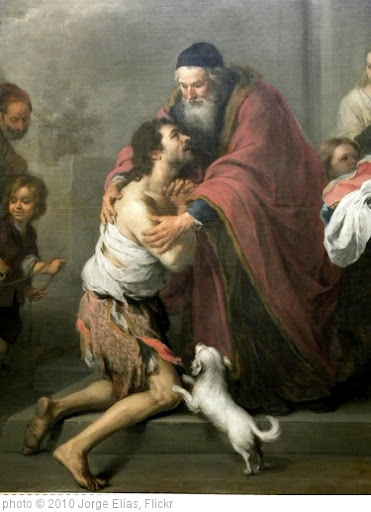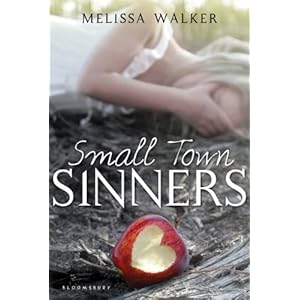Rob Bell is slick. I use that word to describe him and his book, Love Wins, because I believe it’s applicable, even charitable. (Charitable, because I’m trying not to say that he’s only interested in selling lots of books.) Immediately after I read the book, my first thought was, “What’s the big fuss?” I don’t agree with everything in Mr. Bell’s book, but I can certainly agree with much of it. Then, I began to go back and try to find the things I agreed with, those points that were supported by Scripture. First I found that even when I agreed with Bell’s exegesis of Scripture or his explanation of Christian doctrine, he often contradicted his own words in the next paragraph or on the next page. Then, I found that much of what I could support was phrased in the form of a question, and it was not a good kind of questioning. In fact, Mr. Bell seems to question in the same way that the serpent in the garden of Eden questioned: “Hath God truly said . . . ?”
 Then, I saw, in the book and especially in the debate with Adrian Warnock linked below, that Mr. Bell likes to play games with words and with communication. When he is asked a question, he likes to not answer, but rather ask another question or turn the question back toward the interviewer, maybe with a slightly different emphasis or meaning. He reminds me of Humpty Dumpty who famously said, “When I use a word, it means just what I choose it to mean — neither more nor less.” Only with Mr. Bell it’s usually more; words mean lots of things; stories mean lots of things, and Rob Bell chooses the story he likes the best and the meaning he wants to fit his chosen story.
Then, I saw, in the book and especially in the debate with Adrian Warnock linked below, that Mr. Bell likes to play games with words and with communication. When he is asked a question, he likes to not answer, but rather ask another question or turn the question back toward the interviewer, maybe with a slightly different emphasis or meaning. He reminds me of Humpty Dumpty who famously said, “When I use a word, it means just what I choose it to mean — neither more nor less.” Only with Mr. Bell it’s usually more; words mean lots of things; stories mean lots of things, and Rob Bell chooses the story he likes the best and the meaning he wants to fit his chosen story.
“It’s important that we be honest about the fact that some stories are better than others. Telling a story in which billions of people spend forever somewhere in the universe trapped in a black hole of endless torment and misery with no way out isn’t a very good story. Telling a story about a God who inflicts unrelenting punishment on people because they didn’t do or say or believe the orrect thngs in a brief window of time called life isn’t a very good story.
In contrast, everybody enjoying God’s good world together with no disgrace or shame, justice being served, and all the wrongs being made right is a better story.” Love Wins, p.110-111.
Love Wins is supposed to be “a book about heaven, hell, and the fate of every person who ever lived.” However, don’t ask Rob Bell to tell you what the Bible says will happen to you after you die or whether you need to consciously choose to follow Christ in this life, or even whether or not God desires our obedient love for Himself so much that He gave His only begotten Son to secure our salvation from the ravages of sin and hell. Mr. Bell is likely to respond to those questions with a question of his own: “What do you think?” or even “What story do you want to be true about heaven and hell and your own fate?”
My answer to that bit of sophistry is: what I want to be true doesn’t change reality. I would dearly love to rewrite history and say that there never was any fall into sin. I would like for the Story to be all about God’s love and our obedience and love for Him with nothing to mar that perfect fellowship. But I live in a world of sin and suffering, some of that sin and suffering caused by me and the choices I have made, and the good news is that I can have hope and redemption and eternal life through the marvelous sacrifice of Jesus on my behalf. And because of the resurrection of Jesus Christ, I can live an abundant eternal life with Him. That’s a good story and a true story, and it’s available to anyone who chooses to follow Jesus.
However, it’s also true that if any one of us chooses to go our own way, make up our own story, hold on to our sin, and worship some idolatrous figment of our own imagination, God will allow us our tragic freedom. And He will someday say, “Depart from me. I never knew you. (Because you never chose to know Me.)” And that, too, is eternal, and it will be an irrevocable decision. So, in a sense, each of us does get to choose his own story; either we believe the truth or we choose the lie.
I found the book Love Wins ultimately to be slick and slippery, and in the interviews and discussions I saw with Mr. Bell, he comes across as evasive and flippant. Although I think it’s O.K. to smile and even laugh as we discuss important things, Mr. Bell doesn’t seem to seriously care about truth. In fact, I’m not sure he believes that truth is knowable. If not, then we might as well eat, drink and be merry, right?
Adrian Warnock, a Christian blogger from the U.K., debated Rob Bell when Bell was doing a book tour in the UK, and then Warnock wrote a series of posts, engaging key points on which he disagrees with Mr. Bell.
Pastor Kevin DeYoung writes an excellent critique of the book from a Reformed perspective.
 I thoroughly enjoyed Dancing Priest, Mr. Young’s first book about Michael Kent, Olympic cyclist, Edinburgh student, Anglican priest, and orphan with a mysterious past. Of course, it’s also the story of Sarah Hughes, American artist and also a student in Edinburgh, whose lack of faith throws a kink in the developing romance between her and Michael.
I thoroughly enjoyed Dancing Priest, Mr. Young’s first book about Michael Kent, Olympic cyclist, Edinburgh student, Anglican priest, and orphan with a mysterious past. Of course, it’s also the story of Sarah Hughes, American artist and also a student in Edinburgh, whose lack of faith throws a kink in the developing romance between her and Michael. Mr. Young’s writing is simple and unadorned, easy to read and follow. The e-book edition of the book that I read sometimes needed some more spacing indicators to show when the point of view was changing from one character to another. There’s a shadowy terrorist villain in this second book, and I sometime couldn’t tell when I was leaving the mind and viewpoint of Michael Kent and entering the mind and world of the villain. I find this problem frequently in my Kindle reads, and it’s a little bit annoying, but not overwhelmingly so.
Mr. Young’s writing is simple and unadorned, easy to read and follow. The e-book edition of the book that I read sometimes needed some more spacing indicators to show when the point of view was changing from one character to another. There’s a shadowy terrorist villain in this second book, and I sometime couldn’t tell when I was leaving the mind and viewpoint of Michael Kent and entering the mind and world of the villain. I find this problem frequently in my Kindle reads, and it’s a little bit annoying, but not overwhelmingly so.








